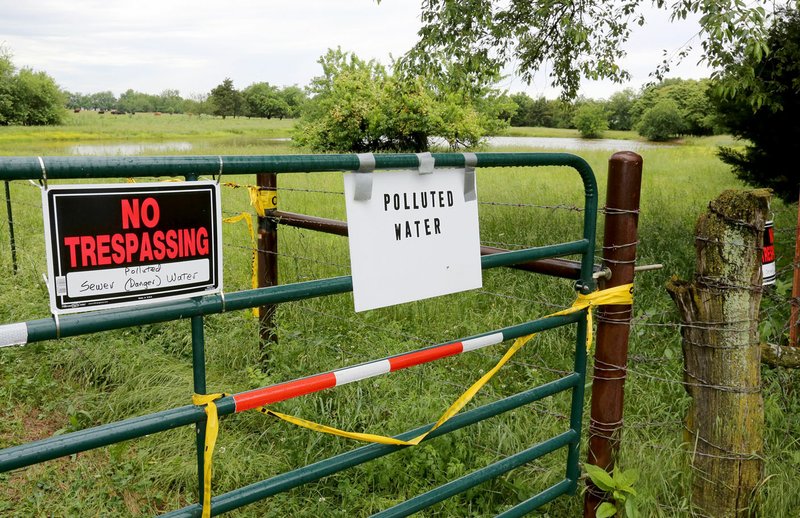BETHEL HEIGHTS -- The Arkansas Department of Environmental Quality has suggested two possible solutions to the waste water woes in the city -- connect to another wastewater treatment system or build a new facility, according to a department spokesman.
The city's wastewater treatment system has had compliance issues since 2007, according to documents Nate Olsen supplied Wednesday.
"ADEQ's goal is for the city to bring its wastewater treatment system back into compliance," Olsen said.
An inspector with Environmental Quality rated Bethel Heights' sewage system as "unsatisfactory" after an inspection Feb. 20. The inspection report noted wastewater pooling on the surface of the ground and water from the system didn't meet purity standards required in the treatment facility's state permit.
A May 6 letter from the department to Mayor Cindy Black instructed the city to submit a plan stating how it will fix the problems. The plan and a schedule for implementation are due to the state Aug. 9.
Olsen said the cause of the permit violations isn't known.
Copies of the permit, the inspection and the letter can be found on the state department's web site.
Representatives of the department and the city discussed the problems Wednesday morning in a conference call, Olson said. The talk covered findings in the February inspection, issues raised by neighboring residents and short- and long-term solutions, he said.
Black didn't return numerous calls and email Wednesday. She also declined comment after Tuesday's City Council meeting during which neighboring property owners expressed concern about wastewater flowing onto their properties.
Agency officials are considering taking action against the city if the 90-day deadline for an improvement plan isn't met, Olson said. The penalty could include fines, he said.
The city submitted a corrective plan in February 2015 for similar violations, according to the letter to Black. Violations continued, and the agency on May 9, 2016, ordered the city to hire an engineer and develop a new plan.
The city certified to the state Jan. 6, 2017, the corrective actions had been taken. The state closed the case.
The latest letter from the state notes since January 2017, the city has reported 43 times the wastewater pooled on the surface and 62 additional violations.
The city's wastewater system consists of a septic tank-pumped sewage collection system -- also known as STEP, Olsen said. Wastewater is collected from the sewage system and sent to one of two treatment facilities.
Large solids and wastes are removed, and the treated water runs through a series of pipes just below the ground on several acres of property. The treated water is slowly dripped to release it into soil just below the surface.
The final treatment of the waste water depends on natural aerobic and bacterial activity of the soil, rather than being discharged or released directly into a lake, stream or river, Olsen said.
The Lincoln Street wastewater treatment plant is on 11 acres. The North Oak Street plant is on 10 acres. The acreage is divided into zones, and a controller alternates a slow dispersal of the treated wastewater into zones to prevent the water from pooling above the ground or onto adjacent land before treatment is complete, he said.
The sewage systems work well if they are operated properly, said Findlay Edwards, an associate professor of civil engineering at the University of Arkansas. He estimated about 50 drip irrigation systems are in use in Northwest Arkansas.
Edwards pointed to the maintenance of a system as problematic. Operators must keep the filters and lines clear of sludge, and they must periodically remove the build up from the tanks and the lines.
It's not easy because all treatment is below the ground, he said. All components of the system also are underground.
As Bethel Heights' population grows, officials must ensure the city has enough pasture to slow drip all of the water it treats, Edwards said.
"You could treat all of New York this way, if you have enough land."
NW News on 05/23/2019

